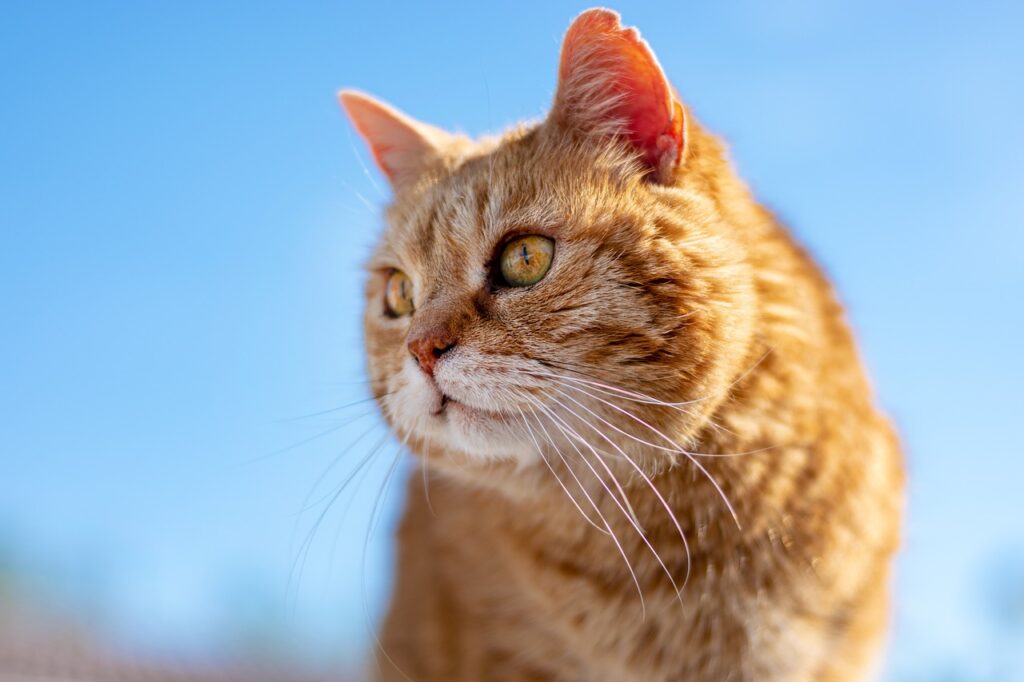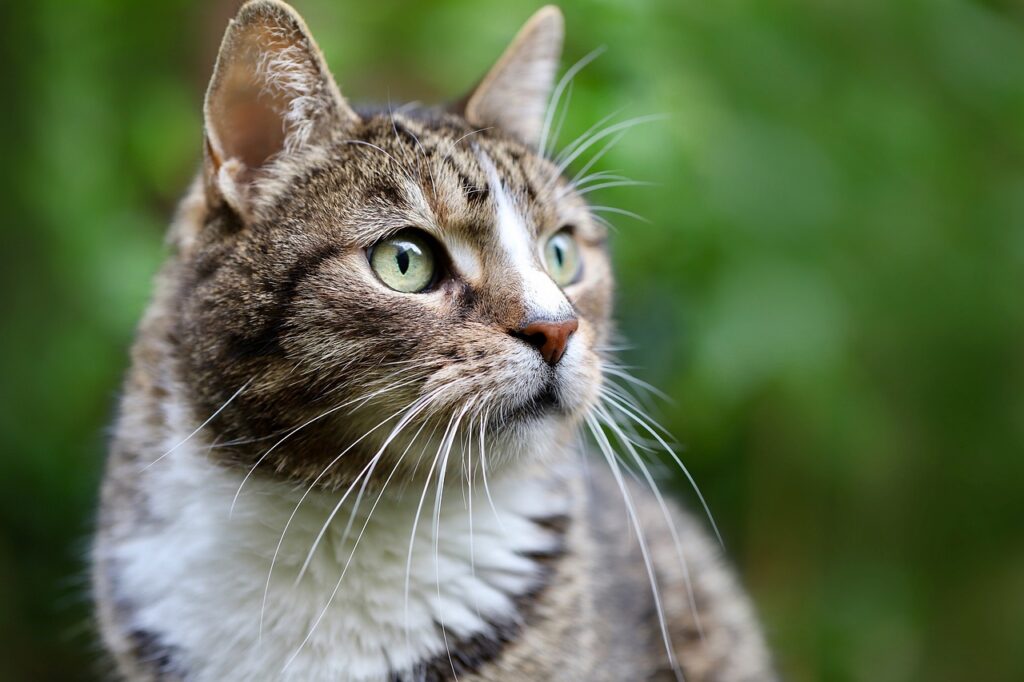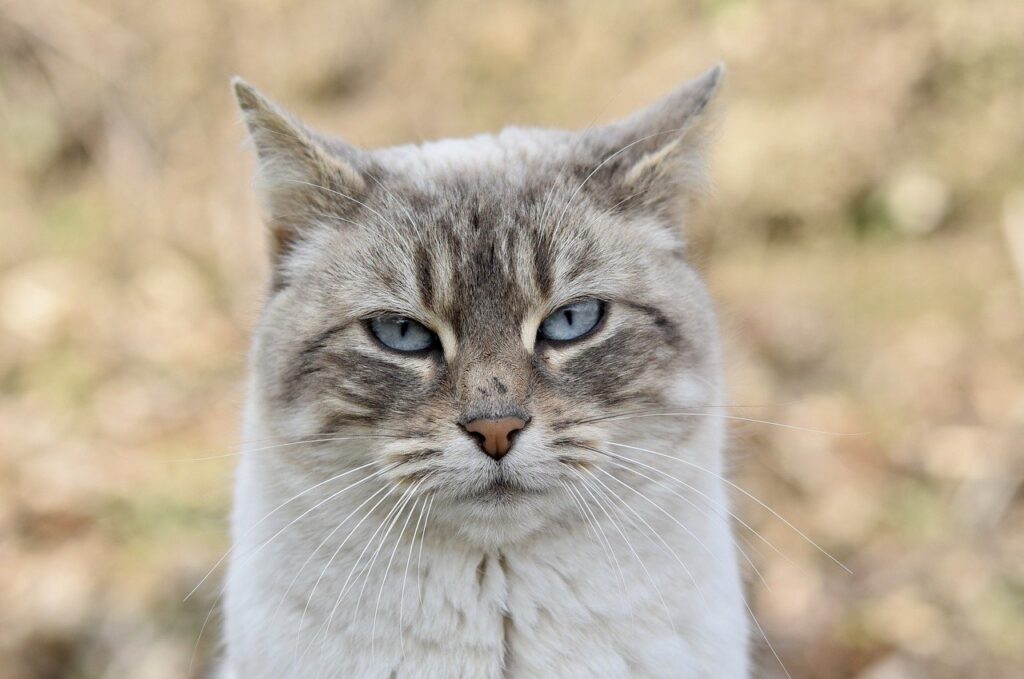What You Should Do to Make Sure Your Senior Cat Lives a Happy and Healthy Life?
With the passage of time, our feline friends transform from mere pets into beloved family members, providing unending love and company. Like ageing people, ageing cats too need a little more love and care to make sure they continue to have happy, healthy lives well into old age. There are a lot of things you can do to help your cat stay healthy, regardless of whether they’ve always been active or have started to slow down.
Learn all you need to know to take care of your elderly cat in this comprehensive guide. Everything about your cat’s ageing journey, from their food and activity habits to their checkup schedules, demands your undivided attention. Your cat can live long into old age if you pay attention to the changes it’s going through and give it the care it needs.
Recognising the Signs That Your Cat Is Growing Older
When cats reach the age of seven to ten, they are typically regarded as “senior” cats. Their energy levels drop, their metabolism slows down, and they may develop an increased susceptibility to diseases including arthritis, kidney disease, and tooth difficulties as they get older. The rate at which a cat ages depends on a number of variables, including its breed, hereditary makeup, and general health, just as every cat is an individual.
Above all else, keep in mind that a cat’s natural ageing process does not always indicate that it is ill or in pain. Despite their age, cats can remain playful, affectionate, and energetic. It’s crucial to adjust your care according to their evolving requirements.
Diet for Senior Cats: The Right Nutrition is Key
The general health of your elderly cat is greatly affected by its diet. Older cats may require less calories overall, but better nutrients, because their metabolisms aren’t as active.
Select Food Appropriate for Your Cat’s Age
Many popular pet food brands have recipes tailored to older felines. In order to promote muscle growth, these foods often have fewer calories and less fat, but they are packed with high-quality proteins. Also, glucosamine and chondroitin are common components in formulations aimed at the elderly because of their positive effects on joint health.
Keep an Eye on Serving Sizes
Being overweight worsens conditions including diabetes and arthritis. Make sure your cat is getting the proper quantity of food for their energy levels by watching their portion sizes.

Wonder About Supplements?
Supplementing the diets of older cats with omega-3 fatty acids, antioxidants, and probiotics can help with skin health, immunity, and digestion. Before giving your cat any new dietary supplements, be sure to talk to your vet.
Maintain an Adequate Supply of Fresh Water
Cats’ susceptibility to kidney illness and dehydration increases with age, so be sure to give them enough of clean water. If you want your cats to drink more water, you can use a cat fountain, sprinkle some water on their food, or just make sure they have plenty of water sources throughout the house.
Wet vs. Dry Food
Older cats, particularly those with dental problems, may find wet food simpler to eat than dry food. Additionally, it helps with hydration by adding moisture. It is important to discover a balance that suits your cat’s individual demands, as some cats may prefer dry food.
Exercising and Engaging Senior Cats’ Minds
Older cats might not be as energetic as younger ones, but that shouldn’t stop you from keeping them busy. Exercising on a regular basis helps in weight maintenance, promotes good joint function, and keeps the mind active and bright.
Gentle Play
Engage your cat in mild play sessions using interactive toys, such as feather wands or laser pointers, for gentle play. Older cats might get tired quickly, so take it easy on them during strenuous or protracted activities. To keep them active without causing them to overexert themselves, try playing with them in short bursts many times daily.
Give Access to Climbing Opportunities
Even though they may not have the same boundless energy as younger cats, older cats still love to explore their environment and climb. Make it easier for them to reach their favourite places by installing ramps or lower platforms.
Promote Exploration
Keep their interest piqued by rearranging their favourite toys, creating food puzzles, or hiding rewards. Preventing cognitive degeneration requires this kind of mental engagement.
Establish a Secure and Cosy Environment
Make sure your cat’s food, drink, and sleeping areas are conveniently located. It may be necessary to modify your cat’s living quarters if they acquire arthritis, which makes jumping and climbing difficult for older cats.

Preventative Care: Why Regular Checkups are Essential
Older cats absolutely must see their vet regularly. They are more likely to develop age-related health problems, some of which have effective treatments when caught early.
Plan Regular Visits to the Vet
Checkups, usually recommended every six months rather than once a year, will increase in frequency as your cat gets older, according to your vet. Problems with the kidneys, diabetes, hyperthyroidism, and teeth can be caught early with these checkups.
Monitor for Behavioral Changes
Older cats often conceal their pain or discomfort, making it essential to observe any subtle shifts in their behaviour. If your cat begins to drink more water, sleep excessively, lose weight, or display irritability, it could be an indication that a visit to the vet is necessary.
Dental Health
Pain and trouble eating are symptoms of dental illness, which is prevalent in elderly cats. Infections and other problems can be better avoided with regular dental cleanings and exams.
Challenges with Joint and Mobility
The inability to walk freely due to arthritis is a typical complaint among older cats. Talk to your vet about painkillers and other therapies for your cat if it’s having trouble jumping, climbing stairs, or moving around freely.
Keep Track of Weight and Physical Condition
Loss of weight, in particular, might be a warning sign of hyperthyroidism or kidney illness. Conversely, obesity, which can worsen other health issues, can result from rapid weight gain. Keeping a healthy weight requires regular checkups with the vet as well as self-monitoring.
Making Senior Cats’ Environment Comfortable
As our furry friends grow older, their needs evolve, and it’s super important to ensure they stay cosy and content.
Ensure Soft, Easy-to-Reach Beds
Because older cats may experience joint pain, it is crucial to provide them with soft, cushioned beds that are conveniently located. Cats, particularly those suffering from arthritis, can find further relief on heated beds.
Modify Their Living Space
If your cat has trouble climbing or jumping, you may want to build ramps or stairs to their favorite locations in the house. They won’t have to go as far for food, water, and litter boxes if you put them in convenient spots.
Maintain Consistency
Older cats do best with regular routines, so do your best to feed, play, and groom them at the same times every day. Worsening with age, worry and anxiety, this helps alleviate them.

Make Sure They Have Plenty of Downtime
Older cats might need more sleep than younger ones, so make sure they have places to go where they can relax in peace and quiet.
Signs of Aging and When to Seek Veterinary Advice
While it’s normal for cats to age, there are warning signs that say your senior cat requires more medical care. Here are several examples:
- Food cravings or changes in fluid intake
- Problems with mobility
- Fatigue or an excess of slumber
- Shift in weight
- Diarrhea and vomiting
- Amplification of speech
- Symptoms of irritation or aggressiveness
You must seek the advice of a veterinarian immediately if you observe any of these signs. Improving your cat’s quality of life and treating age-related diseases are both greatly aided by early diagnosis.
In Summary
Taking care of an elderly cat is an honor and a great way to spend quality time with your pet. You can make sure your cat has a good time in its senior years by paying attention to its changing needs, giving it the correct food, keeping it active but gently, and taking it to the vet often. Your senior cat may bring joy into your life for many more years than any other age group of cats can, with a little extra care and attention.
Keep in mind that your older cat might take their time, but the depth of their love and affection is unwavering and as powerful as it has always been. They have stood by your side in every moment, and now it is your heartfelt duty to provide them with the utmost care they deserve.

